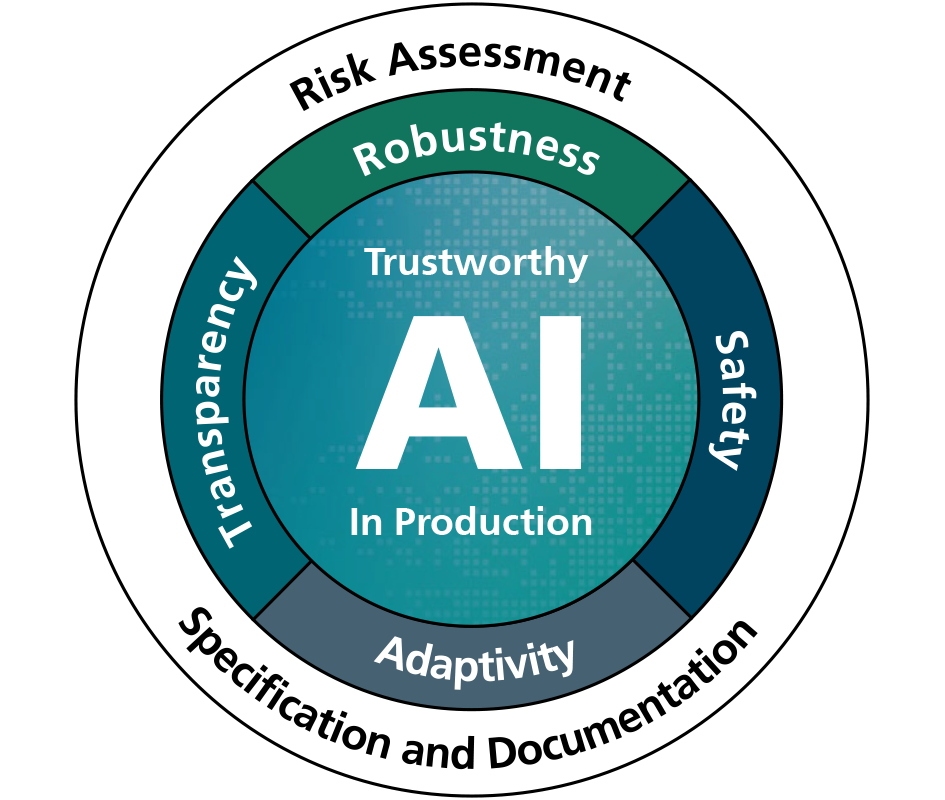Rapidly growing volumes of data in industrial processes, advances in learning algorithms, and falling hardware costs have led manufacturing companies to discover the value of AI as well. AI and machine learning (ML) promise to improve the efficiency of production processes through data-driven modeling and advanced analytics. Although manufacturing companies recognize the importance and future potential of AI, they often fail to profitably integrate AI models into their processes and production systems.
The reasons for this lie in the challenging environment in which industrial AI applications are to be used: High complexity and low quality of the process data, uncertainty and intransparency of the AI models as well as highest quality and reliability requirements from the production area characterize the tasks associated with the implementation.
The fact that AI applications still have a certain degree of novelty means that companies still have little confidence in the use of AI and are reluctant to integrate it into their processes. In order to promote the spread of the technology, the "AI Certification" working group at the Fraunhofer IPT is investigating what requirements are placed on industrial AI applications and how they must be developed, rolled out and maintained.

